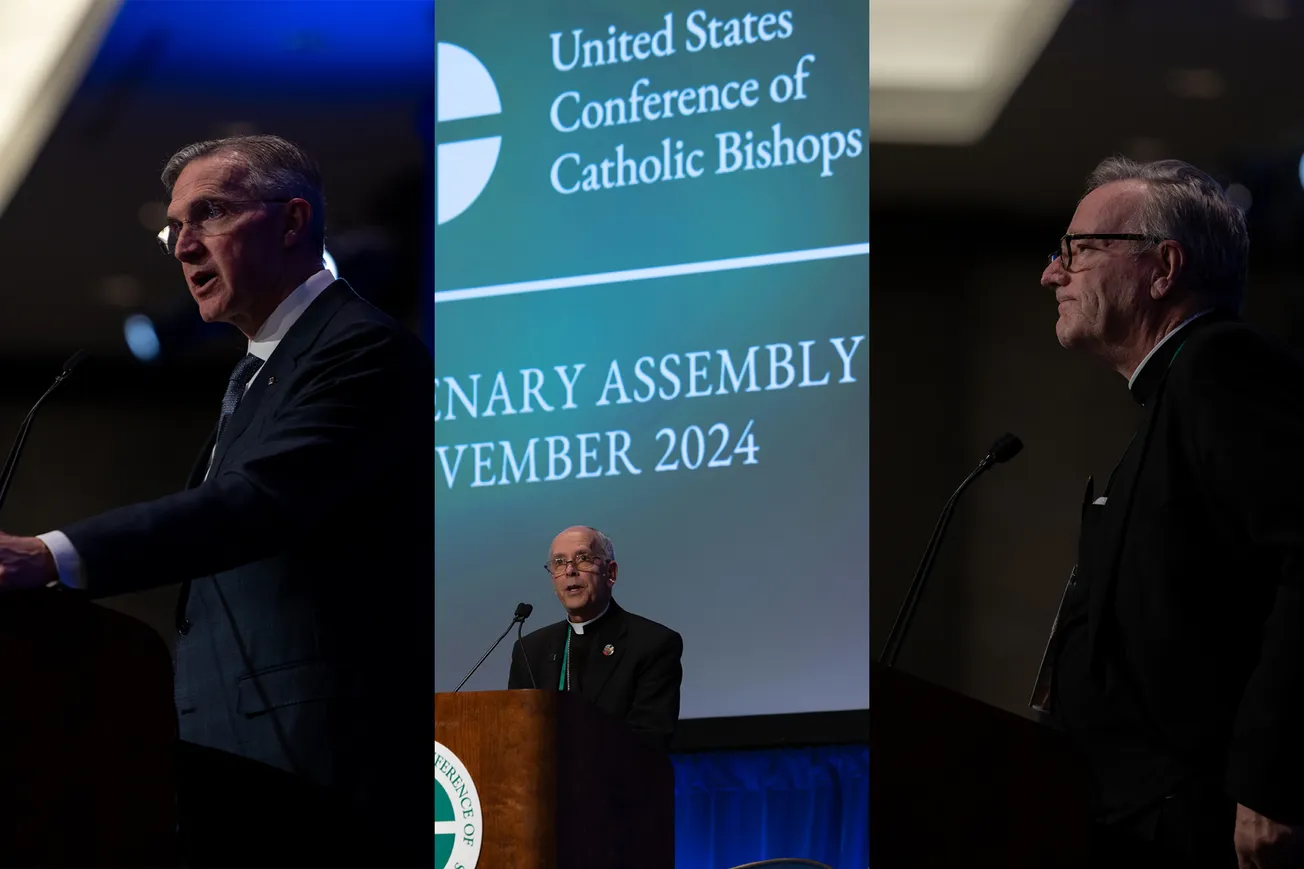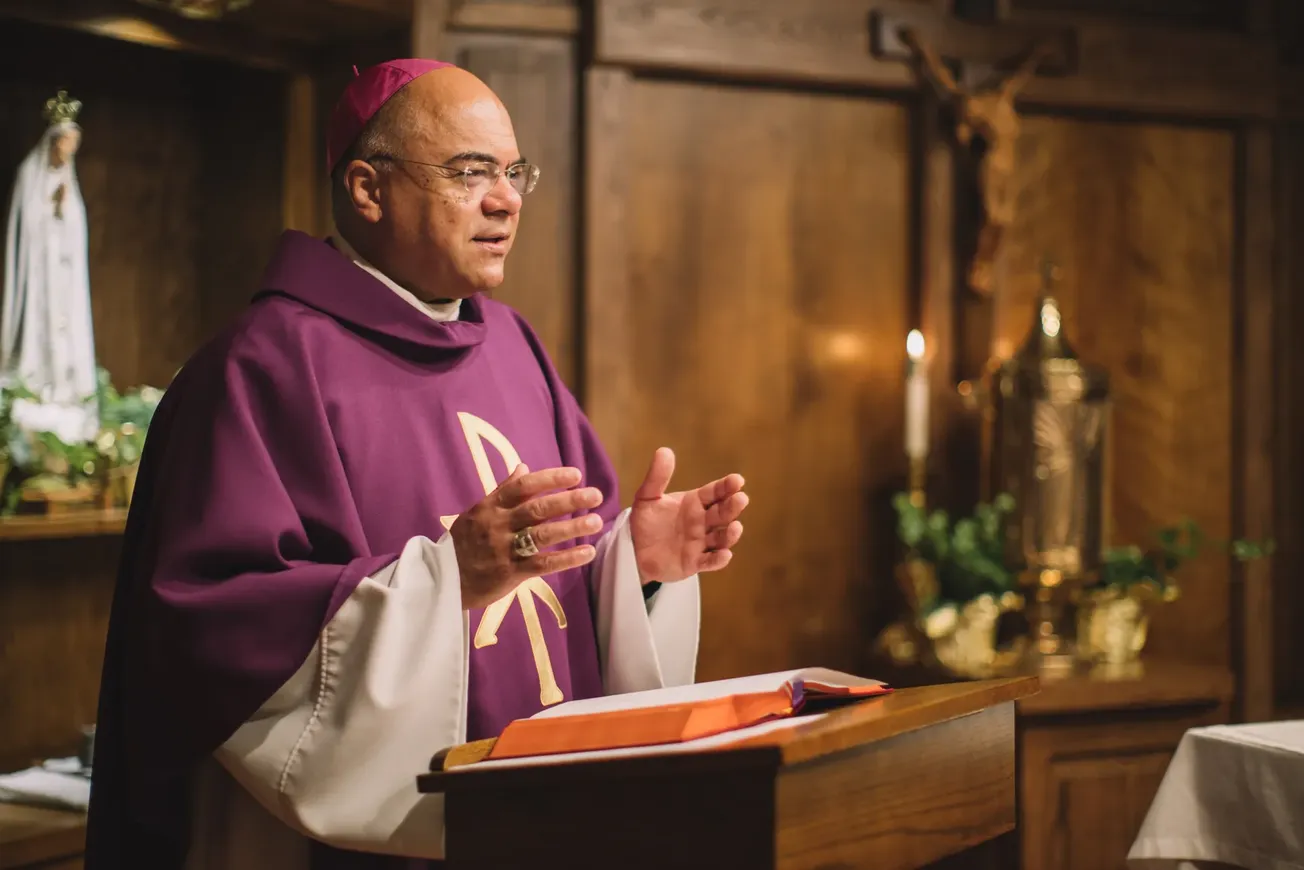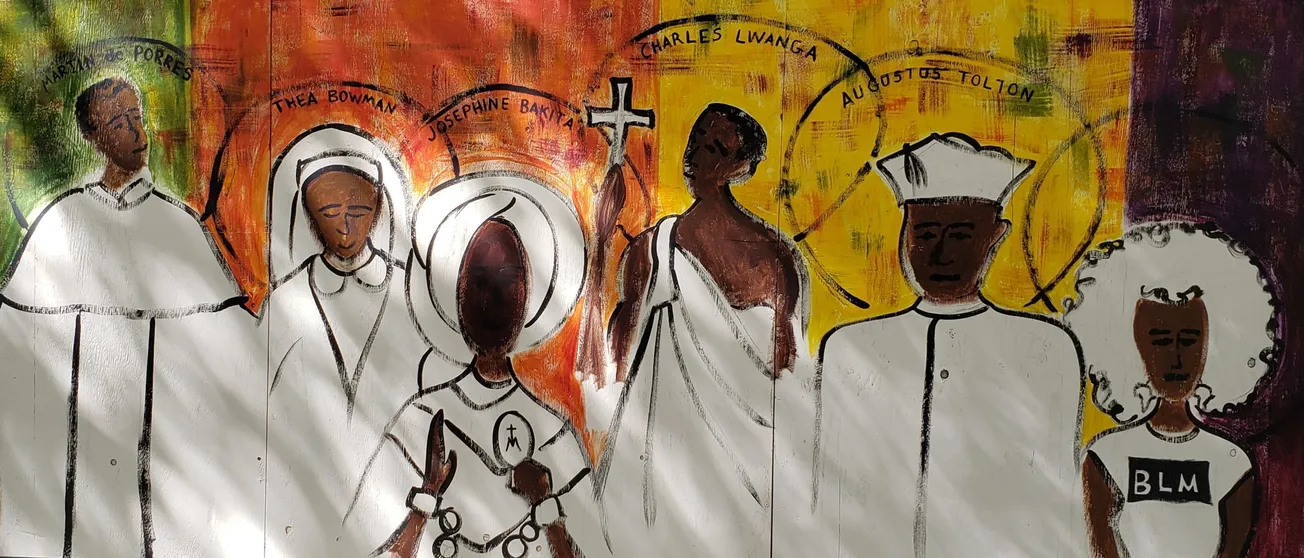Today is an historic day.
After nearly 500 years of African Catholic presence in America (starting with Esteban the Moor in 1528), there is for the first time an African American serving at the highest level of non-papal leadership within the Church.
@WashArchbishop carries w/ him a 455-year old tradition of Catholicism that has always known that #BlackLivesMatter & that #BlackHistory in what became the US did not begin in 1619, but instead in 1565 in St. Augustine, FL. #BlackHistoryIsCatholicHistory.https://t.co/NuAoGxSUqn
— Shannen Dee Williams, Ph.D. (@BlkNunHistorian) November 28, 2020
While this is indeed a day of rejoicing, it is also a day of measured sorrow for the stony road trod to reach this point.
More specifically, while the Catholic hierarchy can never again be said to lack an African-American cardinal in its history, it certainly can still be said to have a dark Black clerical history.
One of the great tragedies of this history is not just the failure of the American hierarchy to see past race and racism to ordain Black Catholic priests, but the failure of the hierarchy specifically tasked with serving Black people.
Chief among these is the Josephites, the order to which I am currently applying to become a priest myself.
Founded in 1893 by a group of Mill Hill priests led by John. R Slattery, St. Joseph's Society of the Sacred Heart was established to continue more exclusively the mission the Mill Hill Fathers, a British order, performed as an international outreach.
With lofty goals and a hard head, Fr Slattery set out not only to serve African-Americans, but—to a certain extent—to empower them. He believed this was the only way to accomplish said mission.
"There is, then, no chance to win the Negroes to the faith without priests of their own."
— Nate Tinner-Williams (@natemup) April 9, 2020
—Fr. John R. Slattery, March 1891https://t.co/FcIyVNzXqe
Even so, his own lingering reticence about Black people's capabilities and faculties eventually doomed his order's early mission, as he continued to apply requirements for Black candidates that he did not for White ones.
More open racism within and outside the society would eventually spoil the Black priesthood altogether for a time, as the Josephites ordained Black men at a much slower rate—if at all—between his death and the 1950s than they did when he was alive and calling the shots.
Fr John Henry "Harry" Dorsey, SSJ
One of the Black Catholic pioneers who reached the clerical state before Slattery's funeral was a certain John Henry Dorsey, just the second Black priest ordained in the United States—after Fr Charles Uncles, a fellow (and founding) Josephite.
Educated at St. Thomas College, a minor seminary in Minnesota, Fr Dorsey also made it in only just before Slattery's spiritual funeral as well. (As the Josephite founder would soon renounce the faith following stiff opposition and racism from the US bishops.)
He took an opportunity at Dorsey's first Mass to publicly denounce them, hoping it would lead to his forced (though obviously all too voluntary) resignation.
"He repeated his oft-stated conviction that the Church would never make significant inroads among Blacks until it sent them catechists, nuns, and priests of their own race...condemn[ing] European missionaries [who] ignored the wishes of Rome by failing to develop native clergies"
(Stephen J. Ochs)
Dorsey, on the other hand, would stick around—despite having been almost blocked from his vocation altogether by Slattery himself. In 1902, he began his priestly ministry.
In this pre-Jim Crow era, he experienced a measure of freedom and respect (especially in the North) but also a seawave of denigration from below (the South) and above (the bishops).
Despite this, he enjoyed a period of success and, during his time as a campus minister as Tuskegee, even won over Booker T. Washington (who might otherwise have seen him as a sort of frondeur).
Afterwards, however, a parish assignment at St Peter's in Pine Bluff, Arkansas, would lead to tension with the Sisters of the Holy Family—including a number of Creoles known to look down on otherwise Black Americans.
This, combined with chronic illness, led to his departure from the parish. The larger controversy of that ordeal led many other orders to curtail any plans to admit Black candidates to their seminaries.
This and other factors led to his open disapproval of his own Superior General, and his brother Marcellus' even more strident (and public) criticism of the order. The latter would team with Thomas Wyatt Turner and his Federated Colored Catholics to organize resistance to the Josephites' racist accommodationism.
Exiled thereafter to St Monica's, a run-down parish in Baltimore, Dorsey would be murdered by a schoolchild's ex-convict father, succumbing to blunt force trauma complications in 1926.
Slattery would die the same year.
Fr A. Norman Dukette
The same year that Dorsey and Slattery departed, new Black priestly life emerged. That said, Fr Norman Dukette, the secular priest ordained in question, would also fall victim to the pre-WWII iteration of White Catholic racism.
Born in 1890 as the 18th of 27 (!) children, Dukette faced much the same struggles as any young Black man seeking to join the ranks of the White priests who ministered to him.
That is to say, the seminaries denied him outright.
Eventually (and on the front end of the Jim Crow era), he was accepted into Loras College, an Iowan institution named after a slaveholding White priest. He was ordained in Detroit in 1926, the first Black priest in the archdiocese.
His first assignment was a founding, of St. Benedict the Moor parish in 1927. He enjoyed success there, not unlike Dorsey in Alabama, but he would leave under duress and not over nothing.
Though the Loras College biography of him does not mention it, the reason for his departure was police brutality.
In 1929, while out for a visit to a convenience store, Dukette was stopped by an officer who racially profiled him, after which Dukette (perhaps wisely) realized his reputation was in danger. Taking flight from the officer, he was eventually shot in the leg before the police realized their crime and let him go.
Wishing to avoid scandal—among White people, anyway—Bishop Gallagher promptly shipped Dukette off to Flint.
Unsurprisingly, as with Dorsey the larger controversy led to at least one prelate denying unrelated Black candidates their vocation.
Dukette managed to make the most of things, and established Christ the King in Flint out of "next to nothing". One of our BCM board members previously attended the parish, and they celebrated 90 years last year.
The death of Uncles in 1933 left Dukette one of two Black priests in the entire United States.
“...there must be something wrong with the present administration of the Church which is unwilling to train young black men for the priesthood... If tragedy entered Uncles’ life... it was because his college talked Christianity and practiced it not.”
(The Afro-American)
Last month, upon the revelation of the aforementioned Bishop Loras' slaveholding, Dukette's alma mater removed a statue of the bishop on the campus.
The school plans to keep the name and add scholarships in the enslaved woman's and Dukette's, but is also committing themselves to telling more complete histories.
Dorsey's alma mater, sporting a residence hall named after the bishop, began to discuss renaming it last month.
With Loras Boulevard housing the former site of the statue and running across the face of LC's campus, from downtown Dubuque to the city's main university, it would appear there's still a long road ahead.
Nate Tinner-Williams is co-founder of Black Catholic Messenger, a priesthood applicant with the Josephites, and a ThM student w/ the Institute for Black Catholic Studies at Xavier University of Louisiana (XULA).










